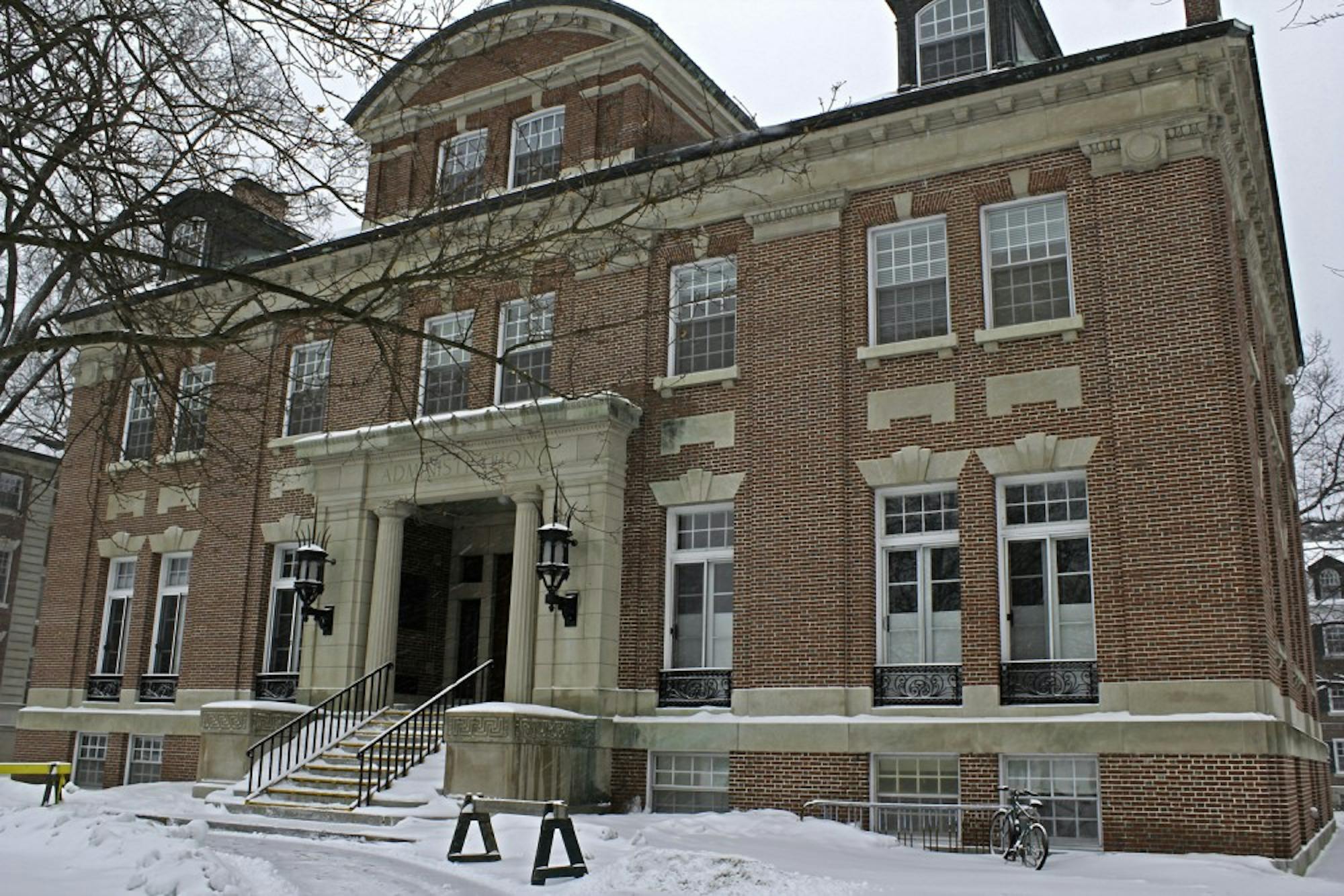The faculty task force devoted to creating an administratively independent graduate school for advanced studies at the College has begun to focus on primary areas for the proposal and plans to submit a final proposal to Provost Carolyn Dever by the beginning of spring term, dean of graduate studies and task force chair Jon Kull said.
Dever established a committee comprised of 10 faculty members dedicated to drafting a proposal for a Dartmouth School of Graduate and Advanced Studies last fall.
Kull said that the committee has already met once this term and plans to meet three or four more times before the spring. He said that currently the task force has been divided into four small groups consisting of two to three people, with each group researching one of the four different areas of the proposed school. These categories include: finance and budget, administration and governance, the role of advanced studies within the school and the mission and vision.
“It will be not just a graduate school, but a school of graduate and advanced studies where the advanced studies represents postdoctoral scholars on campus,” Kull said.
After each small task force group researches its individual focus, the group as a whole will reconvene to discuss and present their ideas. Kull said that the task force plans to complete a proposal draft before the end of the winter term and present it to the faculty of arts and sciences, the Geisel School of Medicine, Thayer School of Engineering and Tuck School of Business, as well as in town hall meetings in order to receive feedback.
Dever said that she is looking forward to the task forces’ recommendations in the spring, but declined to comment further.
The proposal will offer many different options from which College President Phil Hanlon and Dever can choose.
Kull said that the faculty task force has been an effective means of planning the new graduate school, especially now that the discussions are becoming more focused on specific topics like finances.
“I think all in all it’s really good to get different perspectives of the different members and we’re going to take all those perspectives and come up with a common vision,” he said.
There are many details regarding the graduate school that must be implemented correctly in order for the school to be flexible enough to survive at Dartmouth in the future, he said. Due to limited resources, the committee is also trying to strengthen graduate programs and advanced studies without expanding them greatly, he said.
The creation of an independent graduate school is a symbolic move to show that Dartmouth supports faculty, postdoctoral and graduate student research, Kull said. The school could also more easily facilitate programming like professional development, teaching assistant training and writing and presentation skills for graduate students.
“It’s also a mechanism to more easily manage the existing programs, and in particular programs that are not linked directly to departments,” he said.
Kull said that he hopes that the graduate school proposal will be approved by the Board of Trustees within the next year.
Dean of the graduate school of the University North Carolina at Chapel Hill Steven Matson said that Chapel Hill has had a “centralized” graduate school for over 100 years.
There are many advantages to this model, including gaining efficiency in terms of administrative functions and applying a common set of standards and policies evenly across the graduate students within the school.
He added that through the graduate school, different programs do not need to individually fundraise. Instead, the school can provide a single fundraising mechanism by speaking with a “single voice to donors.”
The Dartmouth School of Graduate and Advanced studies can also provide a single voice in terms of advocacy for graduate education both internally on campus and externally to donors, Matson said.
Graduate professor of molecular and cellular biology Amy Gladfelter said that she thinks that the creation of the graduate school is a critical way to validate and support graduate education at the College, which hasn’t necessarily been given all the respect and resources that she feels it deserves.
“I hope it can demonstrate to the larger Dartmouth community that graduate students are really important to the mission and not at odds with undergraduate education, but that these two things are really synergistic,” she said. “I hope that it raises the visibility of Dartmouth as a place of graduate education — a destination for Ph.D. and master’s students.”
The current set up for graduate and advanced studies has some issues because of the lack of a formal structure, Gladfelter said, which does not allow the deans of graduate studies to have as much autonomy as they would at other universities. She said she thinks the new structure will benefit the Dartmouth community as a whole.
“In many respects, Dartmouth has kept its research prominence hidden from the world, but I think in a very international higher education setting we really can’t afford to do that, and it will affect our undergraduate attractiveness,” she said.
Associate dean of faculty for sciences David Kotz said in an email that he thinks that the presence of graduate students will ultimately enhance the College undergraduate experience. He said the move will highlight the strength of Dartmouth’s existing graduate programs, recognize the long history of graduate education at Dartmouth and provide the organizational structure for strategic addition of a few new graduate programs.




